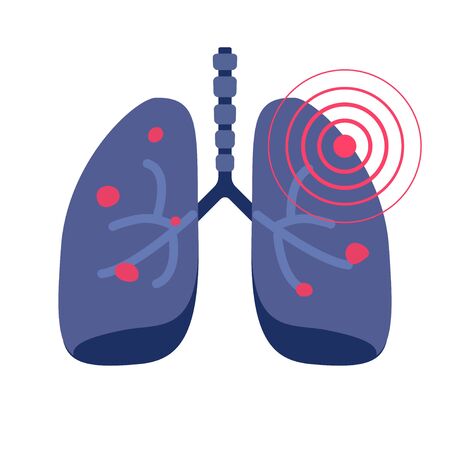Understanding Chronic Fatigue in Rehabilitation
Chronic fatigue is a persistent and often overwhelming sense of tiredness that does not improve with rest and can significantly interfere with daily life. In the context of rehabilitation within the UK, chronic fatigue is particularly prevalent among individuals recovering from long-term illnesses, injuries, or conditions such as post-viral syndromes, neurological disorders, and musculoskeletal problems. The exact causes of chronic fatigue are multifactorial, often involving a complex interplay between physical, psychological, and social factors. This condition may stem from disrupted sleep patterns, ongoing pain, medication side effects, or emotional stress related to illness or disability. For many people undergoing rehabilitation, chronic fatigue becomes a substantial barrier to participating fully in therapy sessions and engaging in everyday activities such as work, family responsibilities, and social interactions. Its impact extends beyond physical limitations; it can also affect mood, motivation, and overall quality of life. Recognising the widespread nature of chronic fatigue in UK rehabilitation settings is crucial for developing holistic approaches that address both its root causes and its far-reaching effects on patient well-being.
Conventional Management Approaches
Managing chronic fatigue within rehabilitation settings often requires a multi-faceted approach, especially as recommended by the NHS and leading UK rehabilitation services. Conventional strategies focus on improving daily function, reducing fatigue impact, and supporting overall wellbeing. Below is a summary of the most established management techniques:
Physical Therapy and Graded Exercise
One cornerstone of chronic fatigue management is physical therapy, particularly graded exercise therapy (GET). This involves a structured and gradual increase in physical activity tailored to the individuals current ability. The aim is to build stamina without exacerbating symptoms, always under professional supervision. Physiotherapists help patients set realistic goals and monitor progress, ensuring safety and effectiveness.
Cognitive Behavioural Approaches
Cognitive behavioural therapy (CBT) is another widely endorsed method for managing chronic fatigue. CBT helps individuals address unhelpful thought patterns and behaviours that may contribute to or worsen fatigue. By working with a therapist, patients learn coping mechanisms to manage stress, improve sleep quality, and enhance emotional resilience—an essential component in holistic recovery.
NHS-Recommended Practices
The NHS emphasises a patient-centred approach, encouraging self-management skills alongside professional support. This includes pacing strategies (balancing activity with rest), sleep hygiene education, nutritional guidance, and peer support groups. Regular follow-up appointments are key to adapting management plans as recovery progresses.
Summary Table: Key Conventional Strategies
| Approach | Description | NHS Recommendation Level |
|---|---|---|
| Graded Exercise Therapy | Structured physical activity tailored to patient tolerance | Widely recommended with specialist oversight |
| Cognitive Behavioural Therapy | Therapy targeting unhelpful thoughts and behaviours | Strongly supported for many patients |
| Pacing & Activity Management | Balancing rest and activity to prevent overexertion | Core self-management strategy |
| Sleep Hygiene Education | Improving sleep environment and routines | Routinely advised as part of care plan |
| Nutritional Support & Peer Groups | Advice on diet and connecting with others facing similar challenges | Supplementary but valuable resources |
Key Takeaway
These conventional approaches lay a strong foundation for managing chronic fatigue in rehabilitation settings across the UK. Combining evidence-based therapies with personalised support ensures that each individual receives comprehensive care tailored to their unique needs.

3. Nutritional Foundations: The Role of Micronutrients
Managing chronic fatigue within a rehabilitation setting requires a holistic approach, with nutrition forming an essential foundation. Scientific evidence highlights that specific micronutrients play pivotal roles in supporting energy levels and reducing fatigue—factors critical to effective rehabilitation. Among these, vitamin B12, vitamin D, iron, and magnesium are particularly noteworthy for their physiological impact on energy metabolism and overall vitality.
Vitamin B12: Supporting Nervous System Health
Vitamin B12 is vital for the healthy functioning of the nervous system and the production of red blood cells. Deficiency can lead to symptoms such as persistent tiredness, weakness, and even neurological disturbances. In the context of rehabilitation, ensuring optimal B12 status helps patients maintain mental clarity and physical stamina, which are both crucial for active participation in therapy sessions.
Vitamin D: Enhancing Muscle Function and Mood
Often referred to as the “sunshine vitamin,” vitamin D supports muscle function and immune health—two areas commonly compromised during periods of chronic illness or inactivity. Emerging research in the UK suggests that adequate vitamin D levels are linked to improved mood and reduced feelings of fatigue, making it particularly relevant for those undergoing lengthy rehabilitation programmes.
Iron: Combating Anaemia-Related Fatigue
Iron plays a central role in oxygen transport throughout the body. Low iron levels or anaemia are well-known causes of chronic fatigue, especially among women and individuals with long-term health conditions. Addressing iron deficiency through tailored supplementation or dietary adjustments can result in significant improvements in energy levels, helping patients engage more fully in their recovery journey.
Magnesium: Managing Muscle Cramps and Energy Production
Magnesium is involved in over 300 enzymatic reactions within the body, many of which relate directly to muscle function and energy production. Research has demonstrated that insufficient magnesium intake can contribute to muscle cramps, weakness, and increased perception of tiredness. For those in rehabilitation, maintaining balanced magnesium levels may help minimise discomfort and support sustained participation in physical therapies.
Evidence-Based Recommendations for UK Patients
While micronutrient supplementation should always be guided by individual needs and professional advice, it is clear that addressing deficiencies can be transformative for those struggling with chronic fatigue during rehabilitation. Regular assessments by healthcare professionals, along with a balanced diet rich in these key nutrients, form the cornerstone of nutritional management for fatigue. Engaging with registered dietitians or nutritionists familiar with UK dietary guidelines ensures that recommendations remain safe, effective, and culturally appropriate throughout the recovery process.
4. Herbal Supplements: Traditional and Emerging Evidence
Herbal supplements have a longstanding history in the UK, both within traditional remedies and as part of modern integrative approaches to health. In the context of rehabilitation for chronic fatigue, certain botanicals have attracted particular interest for their potential to support energy levels and recovery. Here, we review some of the most commonly used herbal supplements—ginseng, echinacea, and Rhodiola rosea—exploring their traditional uses and current evidence regarding fatigue management.
Popular Herbal Supplements in the UK
| Herb | Traditional Use | Proposed Benefits for Fatigue | Current Evidence |
|---|---|---|---|
| Ginseng (Panax ginseng) | Boosting vitality and stamina; overall wellbeing | May enhance energy, cognitive function, and physical performance | Some clinical trials suggest improvements in fatigue symptoms, but results are mixed and quality varies |
| Echinacea (Echinacea purpurea) | Immune system support; combating colds and infections | Theorised to reduce inflammation and support immune function, potentially aiding recovery in fatigued individuals | Limited evidence for direct impact on chronic fatigue; more robust research needed |
| Rhodiola rosea | Adaptogen for stress resilience; enhancing endurance | May help with mental fatigue, mood, and physical exhaustion during rehabilitation | Several studies indicate positive effects on fatigue, particularly under stress, though larger trials are required for confirmation |
Integrating Herbal Supplements into Rehabilitation Programmes
The use of herbal supplements should be carefully considered within a patient-centred rehabilitation plan. Consultation with healthcare professionals is essential to ensure safety—especially given possible interactions with prescribed medications or underlying health conditions common among those experiencing chronic fatigue. In the UK, regulation of herbal products can vary; choosing reputable brands that comply with MHRA (Medicines and Healthcare products Regulatory Agency) standards is highly recommended.
Practical Considerations for Patients and Clinicians
- Dose & Duration: Follow manufacturer guidelines or professional advice to minimise risks.
- Monitoring: Track symptom changes regularly to assess benefits and side effects.
- Personalisation: Tailor supplement choices based on individual medical history, preferences, and response to treatment.
- Cultural Appropriateness: Respect patient beliefs around herbal medicine while providing evidence-based guidance.
Summary Table: Key Points for Herbal Supplement Use in Fatigue Management
| Consideration | Description |
|---|---|
| Efficacy Evidence | Largely promising but inconclusive; ongoing research required for most herbs. |
| Safety Profile | Generally safe when sourced from reputable suppliers and used appropriately; always check for contraindications. |
| NHS Position | No official endorsement; patients encouraged to discuss supplement use with their GP or specialist. |
| Cultural Acceptance in the UK | Widely accepted as complementary but not as substitutes for medical therapy. |
5. Safety Considerations and NHS Guidance
When considering the use of micronutrient and herbal supplements for managing chronic fatigue during rehabilitation, it is essential to prioritise safety and adhere to reputable guidance such as that provided by the NHS and NICE. While some supplements may offer potential benefits, they can also pose risks, particularly when used alongside prescribed medications or in individuals with underlying health conditions.
Potential Interactions and Side Effects
Many micronutrients and herbal products can interact with medicines commonly used in the UK, such as anticoagulants, antihypertensives, or antidepressants. For example, St Johns Wort is known to reduce the effectiveness of certain medications, including oral contraceptives and some antidepressants. Excessive intake of fat-soluble vitamins like vitamin A or D can result in toxicity. Common side effects from herbal supplements include gastrointestinal upset, allergic reactions, and headaches.
NICE and NHS Guidelines
The National Institute for Health and Care Excellence (NICE) currently does not recommend the routine use of supplements for chronic fatigue syndrome unless a specific deficiency has been confirmed through testing. The NHS echoes this stance, advising patients to obtain nutrients primarily from a balanced diet rather than relying on over-the-counter products. Both organisations emphasise that supplements should never replace conventional medical care or be used without professional advice.
Practical Advice for Safe Use
If you are considering using any supplement as part of your rehabilitation plan:
- Always consult your GP, pharmacist, or a registered dietitian before starting any new supplement, especially if you have pre-existing conditions or take regular medication.
- Purchase supplements from reputable UK sources that comply with safety standards; avoid unregulated online retailers.
- Report any unusual symptoms or adverse effects immediately to your healthcare provider.
Following these guidelines helps ensure that any supplementation supports your recovery safely and aligns with best practice recommendations set out by the NHS and NICE.
6. Collaborative Approaches and Patient-Centred Care
Effective management of chronic fatigue within rehabilitation settings calls for a collaborative and patient-centred approach, particularly when considering micronutrient and herbal supplementation. In the UK, healthcare professionals increasingly recognise that no single intervention suits every individual; instead, developing a personalised supplementation plan requires input from both patients and a multidisciplinary team.
The Value of Multidisciplinary Collaboration
Chronic fatigue is a complex condition, often influenced by medical, psychological, and social factors. Therefore, a coordinated effort involving physiotherapists, dietitians, occupational therapists, GPs, and pharmacists is essential. Each professional brings unique expertise to the table—whether its assessing nutritional deficiencies, recommending appropriate supplements, or monitoring potential drug-nutrient interactions. This collaboration ensures that recommendations are safe, evidence-based, and tailored to the individuals needs.
Patient Involvement: A Cornerstone of Care
Placing the patient at the centre of decision-making fosters engagement and trust. By involving patients in discussions about their symptoms, goals, preferences, and any concerns regarding supplements, clinicians can co-create plans that are not only clinically sound but also realistic and sustainable. For example, some individuals may prefer plant-based remedies over conventional options or have cultural considerations that influence supplement choices.
Personalised Supplementation Plans
Personalisation goes beyond simply selecting a supplement; it involves ongoing assessment and adjustment. Regular follow-ups allow for monitoring progress and side effects while providing opportunities to adapt the plan as recovery evolves. Patients should be encouraged to share feedback on how they feel with specific interventions, empowering them to take an active role in their own rehabilitation journey.
Conclusion: Empowerment Through Partnership
Ultimately, managing chronic fatigue with micronutrient and herbal supplements in rehabilitation is most effective when built upon strong partnerships between patients and healthcare professionals. By embracing open communication, shared decision-making, and respect for individual preferences within the UK context, we can support better outcomes and improved quality of life for those living with chronic fatigue.


